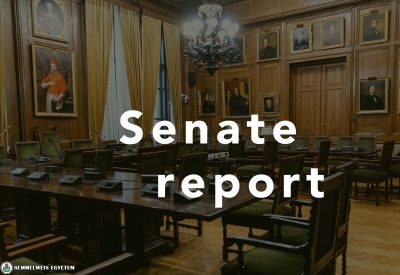The Board adopted the Asset Management Plan for the period 2022-2026.
The Senate decided to merge the 2nd Department of Pediatrics into the 1st Department of Pediatrics, so that from 1 January 2023, instead of the current two departments, a single clinic will continue to operate under the name “Department of Pediatrics”, retaining the specialties of the clinic, but taking into account the infrastructure utilization and duplication. The Clinic will continue to operate in two departments, one in Bókay Street and one in Tűzoltó Street. The merger will not affect the existing educational structure, the primary objective being to optimize management, governance and economic processes, eliminate duplication, optimize the use of infrastructural resources and establish a single pediatric practice.
The Senate also decided that the Department of Pancreatic Diseases will continue its health care activities as an independent department, separated from the Városmajor Heart and Vascular Centre, and will be renamed the “Institute of Pancreatic Diseases”. The most important reason for the organizational changes is the development and implementation of a unified care methodology, which will allow an organic transfer of knowledge between the previously separate institutional units.
The Senate decided to amend certain provisions of the Organizational and Operational Rules (SZMSZ). Among other things, the internal organization of the Directorate-General for Economic Affairs has been amended. The Directorate for Procurement will become an autonomous functional unit directly under the Chancellor, and the Directorate for RDI Network Management will be created.
The Senate also decided to amend the Doctoral Regulations concerning the composition of the public doctoral examination committee.
At its December meeting, the Senate decided to extend the composition of the Habilitation Committee for three months and supported the proposal for the fourth phase of the Book of Regulations.
The Board received information on the organizational changes in the units below the level of the Directorate, which concerns two units, the Directorate General of Human Resources and the Directorate of Property Management.
The Senate supported the current leadership and faculty applications.
Anita Szepesi
Translation: Gábor Kiss
Photo: Attila Kovács – Semmelweis University


